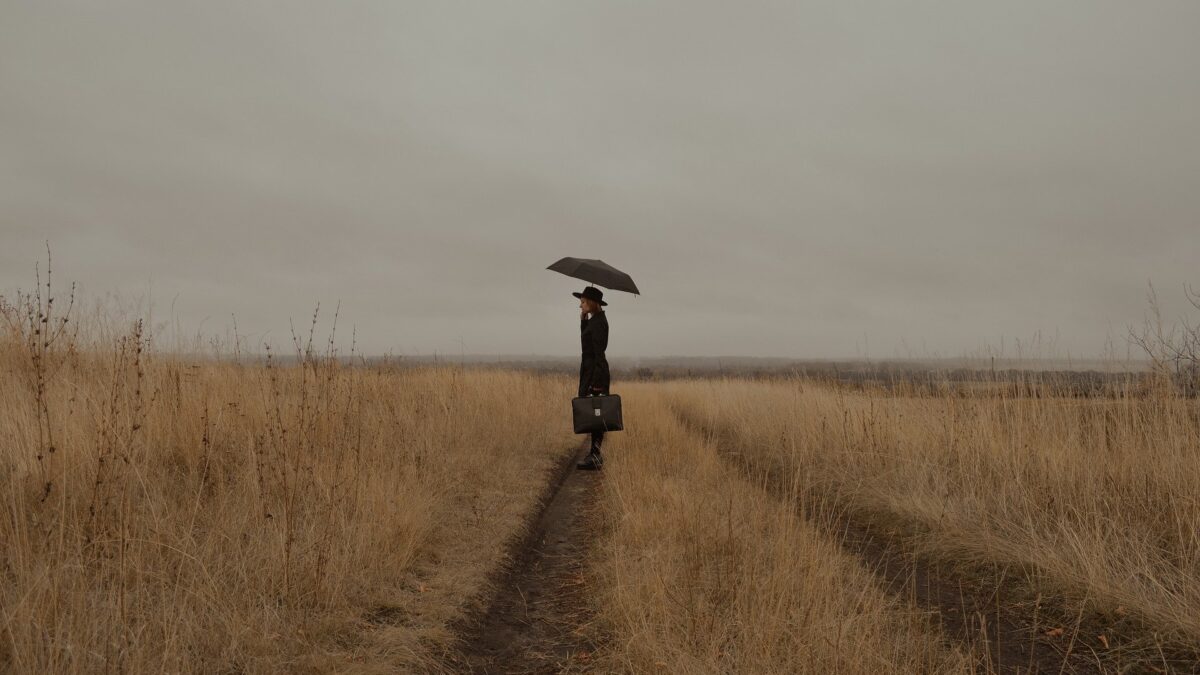
Depression The Mini-Series: Family
“It sounds like you’re saying you want to talk to one of those people,” my mom said slowly, across my teenage bedroom. I sat unevenly on the twin bed, eyeing the pictures of me and my friends taped around the dresser mirror and my CDs stacked up in uneven towers everywhere.
I had corralled her in there and spilled about the tentacles of darkness poking around my brain, the anxiety and the fears and the recurring sadness, ending with a half-baked appeal for professional help. Something like, “I get really sad thoughts and I can’t stop them, and I can’t stop worrying, and I think I need some help. Like, just need some help, Mom.” (I’m paraphrasing here, people. It’s been 25 years.)
That was me politely asking for help, back before desperation stripped away the good manners. This was me testing the waters. As a teenager sometimes I had visions of myself in a mental hospital, and strangely, those visions brought me comfort.
But the visions were in my head, and there in front of my face was my mom, halfway across the room, not saying no but not saying yes either. My mom, who almost always dropped everything to help me out or cheer me on. In her voice, I heard hesitancy and suspicion and wanting me to NOT need whatever it was that I was asking for.
I wanted to be who my parents wanted me to be. I wanted to not need help. So I half-smiled and shrugged. “No, I guess not.”
I’m sure we talked more, about getting enough sleep and exercising and taking time to relax, Self Care 101. My mother is a big proponent of all those things. She grew up with this advice, along with platitudes about toughing it out and the old “what doesn’t kill you” line (which I will NOT finish here because, for the love of God, you all know it and for the damn record, it isn’t always true.)
Now, here’s the thing: I am blessed to come from the family I do. My parents love me and hit it out of the park on many things parental, especially my mom. And they’ve grown a lot with me understanding mental health in general and mine in particular over the past 15 years or so. But when I was growing up, they bought into a widely believed, harmful lie about mental health. The lie of stigma, scary, and separation.
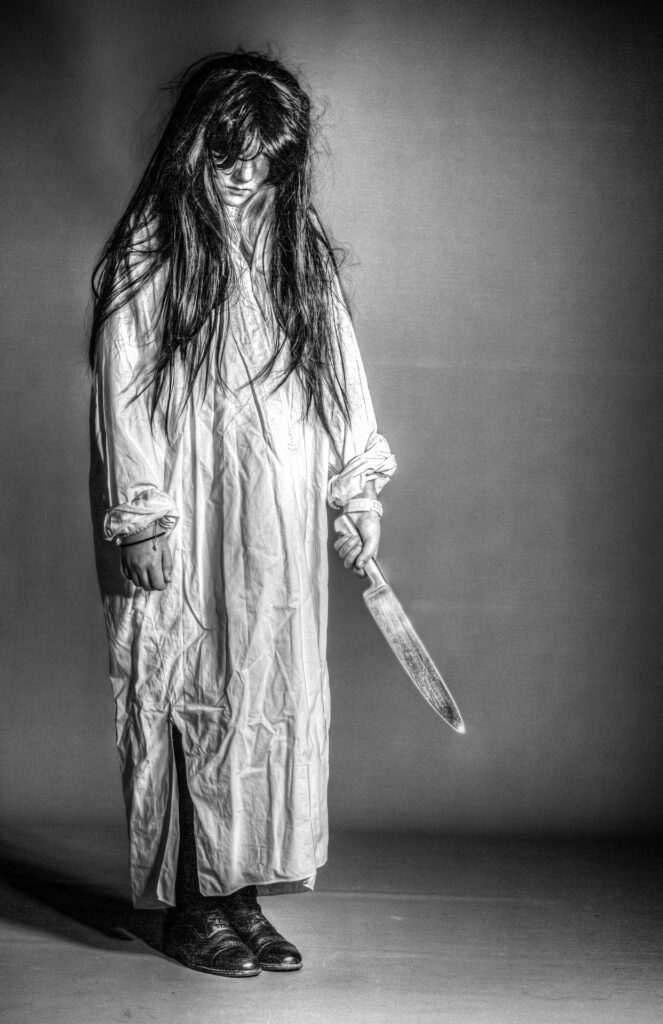
On team “us”, of course we are mentally healthy. We get sad, we get angry, we have our disappointments and heartbreaks etc etc. But we get over them and go on with our lives, preferably to great success and acclaim. We do NOT need psychiatrists, therapists, or anything of the like.
On team “them”…well. They are sad and vulnerable. Pitiable and sometimes just plain odd. “They”, of course, are people with mental health conditions. The image I got was of people stumbling around in hospital gowns, unable to function or engage much with the world. We feel badly for them, of course, but we don’t know what to do with or for them, so we wish them the best and quietly stay away.
It turns out, I am a member of both teams. Although really, it turns out, there aren’t two separate teams at all. But I didn’t know that back then. I guess my parents didn’t either.
In my freshman year of college depression hit me like an eighteen wheeler. My thoughts slowed down and all turned gray. I dragged myself out of bed to class, then retreated to my room to take refuge under the blankets and tried to fall asleep to escape my own bleak mind. I wanted to make the clouds trapped in my skull go away. Not knowing how, I wanted to escape and, barring that, to be left alone. I wanted to be left alone so badly that I ignored repeated calls from campus security, until one day they showed up at my door with a bouquet of flowers that my parents had sent for my birthday. Somehow they ended up at the security office by mistake. The flowers sat on my desk for weeks, their rainbow leaves the only cheerful thing in the room.
That sums up so much of how the adults in my life tried to help me with my depression. I needed a wellness check, a therapist, a community of people I could be real with and an SSRI. I got uncomfortable smiles from the security officers and a bouquet of flowers from my parents. They didn’t know what to do with me, a clearly sad but still outwardly functioning freshman.
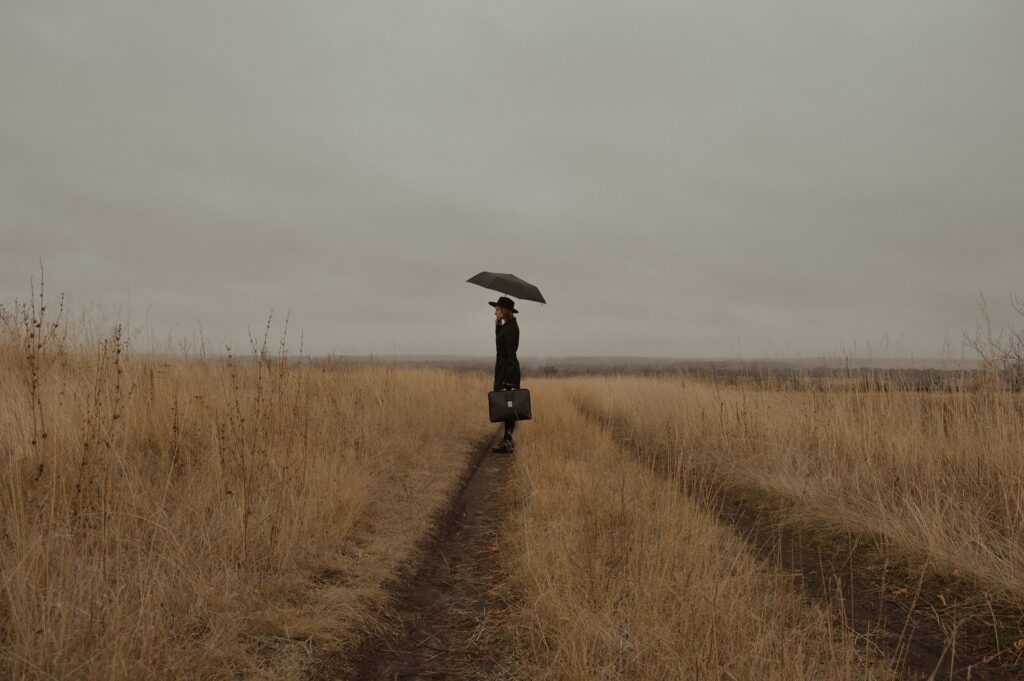
My peers were wiser. That spring my friend Sharkey all but carried me to Health Center to see one of “those people” – my very first therapist, Karen, who in a strange twist of fate had grown up in my hometown and attended my same high school 800 miles away. Thanks to God and the Williams College trustees, I had unlimited free therapy visits, and I used them off and on over the next three years.
My dad and my brother didn’t know I was going to therapy. My mom knew but was noncommittal. She didn’t tell me not to go, but I don’t remember her ever affirming the practice either. It felt kind of like living with a very polite political dissident – they’re never going to tell you “I object to what you’re doing here”, but the disapproval reeks out nonetheless. My mom might not have been so anti-mental health establishment, were it not for a bad experience in which my brother was (mis)evaluated by a team of psychologists as a young child. But that experience did happen, so there we were, with me clinging to my therapy visits like a lifeline over the backdrop of my mother’s silent suspicion.
I don’t think my parents believed clinical psychology was anything more than witch doctoring until I started SSRI’s in my mid-20’s. My mother knew I was starting them, and had reacted with her usual silent-dissident treatment. Actually, she might have upgraded by then to, “I’m sure you’re doing what you think is right.” My dad had no idea anything was going down. But a few weeks later, he remarked to my mother, “D’Arcy seems like her old self again.”
My dad is not known for intuitive observations on the state of his fellow humans. But every so often, he gets a zinger. My mom, on the other hand, IS an intuition queen and usually figures out what’s going on long before she’s been told. But in this case, my dad beat her to the punch. And as she saw me moving with more animation than I had in years, my mother’s conversion to understanding my depression was real began. Not too long after, when I was being particularly hard on myself, she said, “I think that’s your depression talking.” The observation floored me, both because it was spot-on and it was coming from her.
I started to get comfortable with myself as a person with depression. My parents started to get comfortable with me as a person with depression. A quirky, chatty, bookish, energetic, idealist who just happened to have depression. Same me I’d always been – plus depression! It was like I was one of those desserts with a strange savory flavor mixed in – a little basil amid the cookies and cream. Unexpected, but there it is. Everyone around me learned to accept my basil. My husband knew it was there from the get-go and never questioned it. His family, my new extended family, followed suit. Depression was just one of the many pieces of me. I still hurt on the inside sometimes, but the grayness didn’t crush me the way it had back when it first emerged. I was a woman on the move, working, planning, going to grad school. Life was fun again! It was bloody amazing.
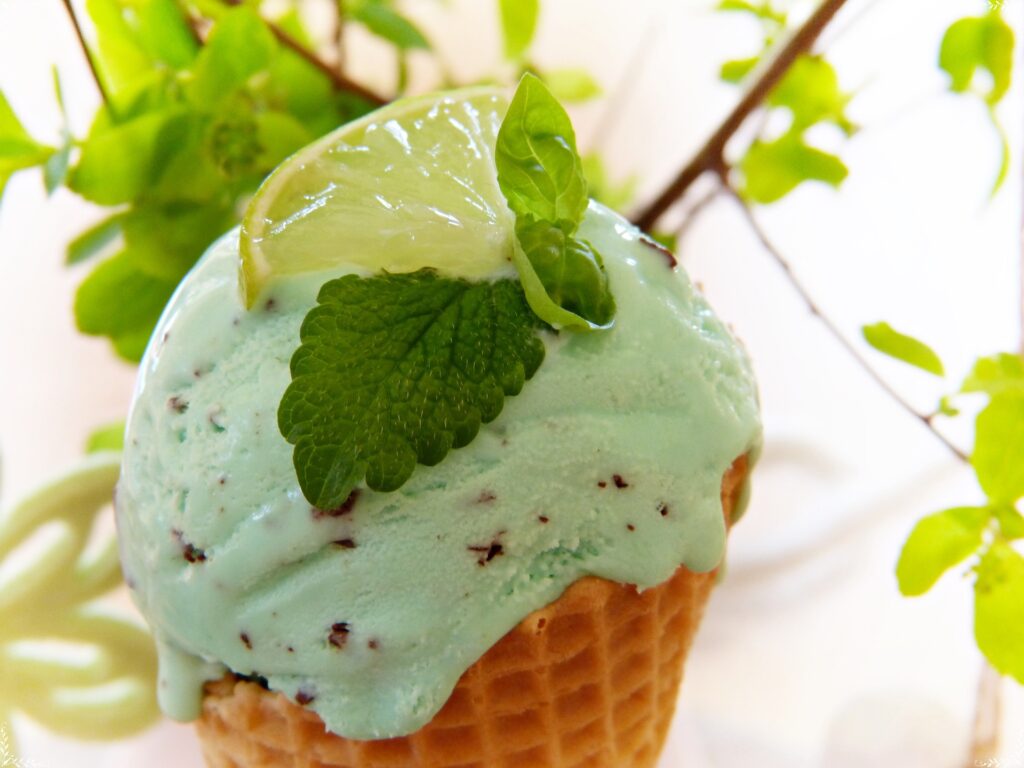
Here’s the thing about living with this kind of depression, that’s also true of living with many chronic conditions. You may have it so well under control for such a long time that you can almost forget it’s there. But when things in your life change, your brain and body change, and your depression tags right along for the ride. So about 8 years ago when my life dissolved into a carnival of work and family and moving-related stress, guess what came out roaring with a vengeance?
Depression brought a surprise guest this time. For the first time, I met depression’s twin sister, mania. It turns out, I unwittingly gave mania an invitation to the party, becoming pregnant during a stressful time and dropping my SSRI’s for the good of the baby. The best intentions, am I right??
Pro tip/PSA: the post partum period is considered the most volatile one for women with bipolar depression. Your brain has just taken a hormone bath, there’s a screaming new infant beside you, and mania and depression can hardly resist joining in the chaos. If you, like me, didn’t know in fact that you WERE bipolar…..buckle up and breathe deep, cause you’re about to find out.
My mom was exposed to a new dimension of my mental health in my bedroom once again. This time, I was standing there in my nursing bra and hospital issue underwear, waving my hand from the wrist and parroting, “Bye! Bye-bye! Bye-bye!” to my mother, who was trying to have an actual conversation with me. This was before I heard my father on the stairs and raced to hide under the sheets. Does that make sense? No. Mania doesn’t.
Later that evening, my husband was asking me questions, and my brain couldn’t form the words, so I squatted down and made hand gestures like I was painting instead. His voice was kind and just barely calm as he said, “You’re scaring me, hon.” By the middle of the night I’d regained the power of speech and was on the phone with my in-laws, talking about myself in third person and begging them to come down and help me. This was me, a brand new, stressed out, literally manic mom, burning down during what I thought would be some of the happiest days of my life.
It took a stay at the psych hospital to put me to rights. A stay that I am incredibly grateful for. More to come on that next time in our blog mini-series on depression here. But after my folks had seen me in all my manic anxiety, one minute thinking I was a prophet on the level of Jesus and Muhammad and the next minute being convinced we had to take all the pictures off the baby’s walls RIGHT NOW, there was no more hiding or playing down my depression. As my dad later told me on the phone, “It shocked your mother to see you like that. It shocked both of us.”
Well…..yeah. It should have. It shocked me to BE like that. It shocked me into taking my mental health truly seriously, for the first time. And I think it shocked my parents into the same thing.
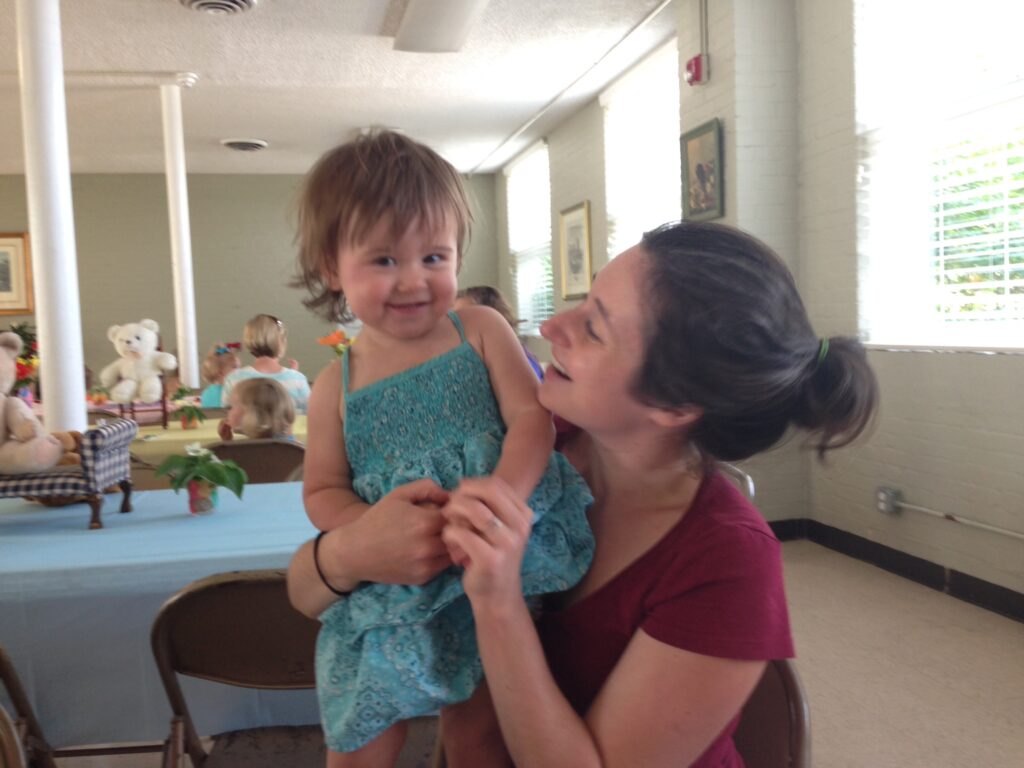
Yeah. I feel like we could all use a soothing picture. Here’s me and baby Banana.
The takeaway here is not “experiment with medicine to see if it makes your parents like you better” or “crash into a psych ward to force everybody to take your diagnosis seriously!”
It’s more like….no matter what family, background, or belief system you come from, please take mental health seriously. Not everyone, yourself included, may fit into the ideas you had about mental health growing up. I, for example, do not at all resemble Jack Nicholson in “Clockwork Orange” or Winona Ryder in “Girl, Interrupted”. I’m a working mom, wife, neighbor, school volunteer, friend and ice skater who balances a condition called depression. With a soupçon of mania under the iceberg, just to keep things pain-in-the-ass interesting.
The other takeaway is – take care of yourself. The people who raised you may not have it right. Trust yourself and those around you who get it, and try things till you figure out what works for you. Hopefully family support can be part of that picture. And something that will likely need to be, if you’ve got any kind of brain condition going on, is treatment. Talk more about that next time, in part 2!
Image credits: girl with knife by Tommy Takacs, woman with umbrella by Victoria_Borodinova, ice cream by silviarita. All from Pixabay.
Jenna
Amazing! The part where we all look at the person and picture of mental health
Mary Mittelstaedt
D’Arcy Robb Borek, I am so in awe of your courage, intelligence, communication skills, creativity, compassion, and caring. All of your blog posts have been very good…This one, is outstanding! Your personal insight and exceptional courage to share your experience with depression and mania is a tremendous gift to all of us, Whether we are navigating our own journey with mental illness or trying to understand the journey of another, you my dear are a phenomenal guide through the experience. I am so very proud to say I know you!
D’Arcy
Mary thank you so much for these beautiful words. The blog is my heart project and I am so glad you enjoy it. It took a lot of deep breaths to share this one. Thank you for affirming it.
D’Arcy
Thanks so much for the love & support, friend. The picture of mental health is a murky one, for sure.
Frank Miller
I’m not sure what to say or where to start. So, firstly, this is amazing. Your courage astounds me. Secondly this hit the nail on the head for me. My right now is consumed with learning how to deal with a new diagnosis and learning how to care for and live this out. This was so very much an on-time read for me. Thank you D’Arcy.
D’Arcy
I am so glad this hit at the right time for you Frank. Maybe it was supposed to. I hear you on the dealing with a new diagnosis and learning to live with it….I’d pretty much just gotten comfortable with having depression, and it was like, wait, what, biPOLAR?? It’s a process for sure, but it definitely gets easier. I’m rooting for you.
Denise Quigley
Thanks for sharing your story! This is such an important topic and a great way to start conversations. Happy Mental Health Awareness Month. Much admiration for your honesty and courage.
D’Arcy
Thank you so much, my friend! I so appreciate that.
Renée Pruitt
Thank you for being vulnerable and sharing this. This was the reminder that I needed to hear today.
D’Arcy
I am so glad it spoke to you! Thank you so much for the support.
Ann L Voigt
Darcy, Saying thanks for your sharing is so inadequate. You are brave and courageous . Mental health has always been a shush – shush deal with it in our family (my father, my great aunt, ultimately my brother and me). Fortunately he broke the mold and got help early, I waited until almost too late. Learning to share and be vulnerablewas the hardest thing I ever did, but it was also freeing. When I grow up I hope I can be more like you. You are my inspiration.
D’Arcy
Oh Annie, thanks so much for this beautiful comment! I am so glad you and your brother were brave & vulnerable enough to break the mold and get support. Not an easy thing to do, but so, so important. Hugs.